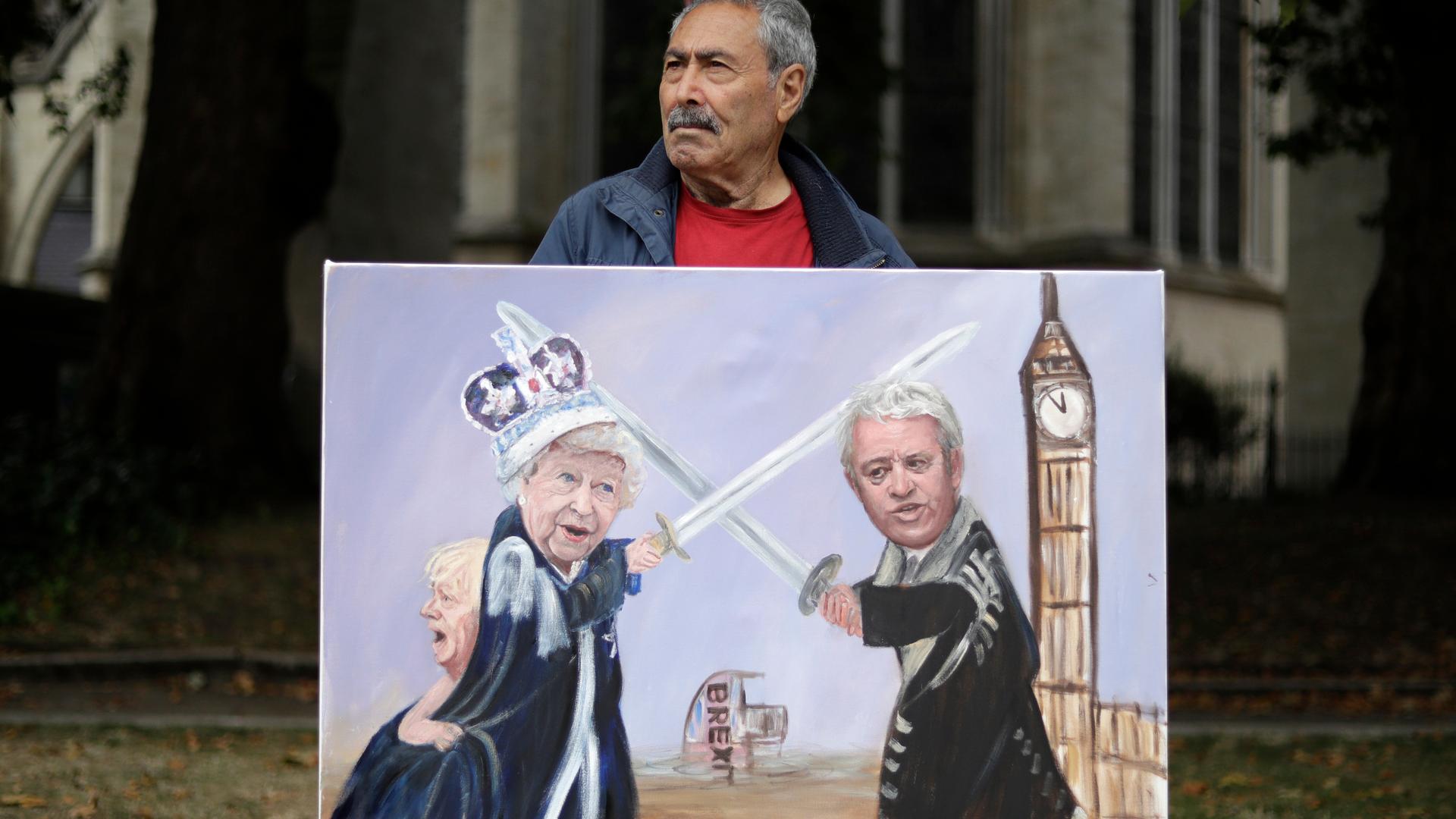The British parliamentarian became famous for his eloquence, his loud ties and allowing Remain-leading politicians to table emergency debates about Brexit. Now he has left, will British politics ever be the same again?
In 2009, when David Cameron was the Conservative leader of the opposition, he chanced upon former Labour MP for Tooting Sadiq Khan, in the toilets of the House of Commons. It was just after John Bercow’s election as Speaker.
“I just voted Conservative for the first time ever!” the future Mayor of London told the future Prime Minister. Cameron gruffly replied: “Oh, but John Bercow doesn’t really count!”
On November 6, a week after he had stepped down as Speaker of the House after a decade’s tenure, and in front of 120 journalists at the Foreign Press Association in London, John Bercow chose to give an exclusive briefing to a deliberately-chosen international, rather than national, press gathering.
Bercow’s billing filled the room; after all, he had shot to world fame. Looking relaxed and in his element, he offered up some candid thoughts on Britain’s political impasse.
“I think that Brexit is the biggest foreign policy mistake in the post-war period,” he said, adding that it was far better for the United Kingdom to remain part of the [European Union] power bloc.
Bercow chose this particular platform to speak freely because he is an unapologetic European – part of a pragmatic Tory group, reviled by the current prime minister and his echo-chamber in the right-wing press.
His remarks made instant headlines. A Scottish National Party MP quoted them approvingly in a BBC debate, while the Daily Mail attacked him harshly for having expressed a pro-EU stance.
When he was speaker, Bercow faced vicious criticism from cross-party Brexiteers, who questioned his impartiality in granting debates (which were perceived as having led to amendments) to Remainer MPs.
Checkmated Brexiteers accused him of ignoring convention to enable pro-EU MPs to rule against the government, and pass laws that blocked what would have been a (catastrophic) ‘no deal’ Brexit.
His sanguine reply to such retorts was that he had no regrets, having done his job as speaker: to protect parliament.
With Bercow stepping down, and with 40 MPs announcing that they will not be standing in the general election on December 12, Britain’s House of Commons will likely never be the same again.
Unlike the majority of grim-faced, straight-laced and boring British politicians, Bercow was known for his exuberance and panache.
In the tradition of an 18th-century English dandy, he was noted for his flamboyant ties – confessing to having amassed a vast collection.
Bercow and the former Father of the House Kenneth Clarke are both old-fashioned patriots, despite their generational difference. Their manners, mannerisms and good-natured gravitas bear no resemblance to the debased populism of Conservative MP Jacob Rees-Mogg or the dishonest, irresponsible antics of Prime Minister Boris Johnson.
The latter appear more like Eton public schoolboys than men, arrogantly imagining that posh accents, studied eccentricity, a misplaced sense of entitlement and sheer ignorance could carry the day. Their brand of suicidal Brexit politics has split the Conservative Party; courted the far-right; allegedly allowed itself to be penetrated by a hostile foreign power, and gone so far as to break the law.
For all their pretence at nationalism, it is Bercow who has shown to represent the commendable qualities of what it might mean to be English – even though he hails from Jewish Romanian refugees on his father’s side (their original name was anglicised from Berkovitz).
Bercow’s deadpan sense of humour, love for sport, football fandom (he’s an Arsenal fan) and passion for tennis (he famously admires the Swiss champion Roger Federer) all made him likeable. But it was his masterly command over the English language that drove his performances in the House of Commons to go viral on both television and the internet.
He managed to turn the workings of parliamentary democracy into riveting theatre, found celebrity in the manner that actors do, and is undoubtedly one of the country’s most recognisable politicians.
Since Bercow’s Shakespearean performances have graced TV screen, BBC Parliament’s TV station ratings have increased more than tenfold. In October 2018, it had 230,000 viewers, whereas a few weeks ago, that number had risen to 2.75 million.
The former Speaker was never afraid to give unvarnished opinions. When Johnson announced at the end of August that he wanted to prorogue parliament, Bercow was quick to call this a constitutional outrage. He was widely criticised for such impolitic candour.
A few days later, on September 9, during the actual motions of prorogation, when that throwback to the Middle Ages – the Black Rod – came into the House of Commons to lead him and all the MPs out, the Speaker of the House reprimanded this step as an “executive fiat”.
In front of assembled foreign journalists, Bercow spoke about this suspension of Parliament. “What matters is the judgement of the Supreme Court,” he insisted.
“What matters is 11-0. Maybe it’s not clear: eleven-nil!”
He also added that Brexit would be discussed “with a total certainty for at least the next five years, very probably for the next ten years, and conceivably for the next 15 years.”
At a time when Britain is in a miserable state of division and disorder, Bercow’s impassioned and unmistakable cry of “Order! Order!” was a breath of fresh air, and will not be forgotten for a long time.
Author: Alexander Seale
Alexander Seale is a journalist, as well as a radio and television broadcaster in French and English. He is a specialist in French and European politics and culture. He lives in London, where he trained at the BBC.
Source










Discussion about this post